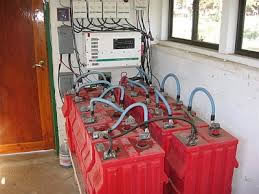Is Adding Solar Batteries Worth it?
 Seeking to help states better address the value proposition of solar+storage systems, the Interstate Renewable Energy Council, Inc. (IREC) engaged Clean Power Research (CPR) to develop a methodology that could be used to value solar energy coupled with battery storage. The methodology described in the report can be applied in any location. It focuses on Hawaii as an example, as it is likely to be an early adopter of storage regulations.
Seeking to help states better address the value proposition of solar+storage systems, the Interstate Renewable Energy Council, Inc. (IREC) engaged Clean Power Research (CPR) to develop a methodology that could be used to value solar energy coupled with battery storage. The methodology described in the report can be applied in any location. It focuses on Hawaii as an example, as it is likely to be an early adopter of storage regulations.
"The concept of adding batteries alongside a utility customer's solar array intrigues utility customers, solar developers, and utility planners on several levels, but the underlying question for everyone is whether adding batteries is 'worth it,'" says Jason Keyes, Partner at Keyes, Fox & Wiedman LLP, attorney for IREC and report collaborator.
Though still at a nascent stage, the recent rapid growth in the distributed energy storage market suggests that now is an opportune time to take a closer look at distributed energy storage, especially in combination with distributed solar, and the values it has to offer. The new IREC study lays out the methodology to do just that and sets forth a pathway for more robust analysis and dialogue. Cont'd...
Comments (0)
This post does not have any comments. Be the first to leave a comment below.
Featured Product

